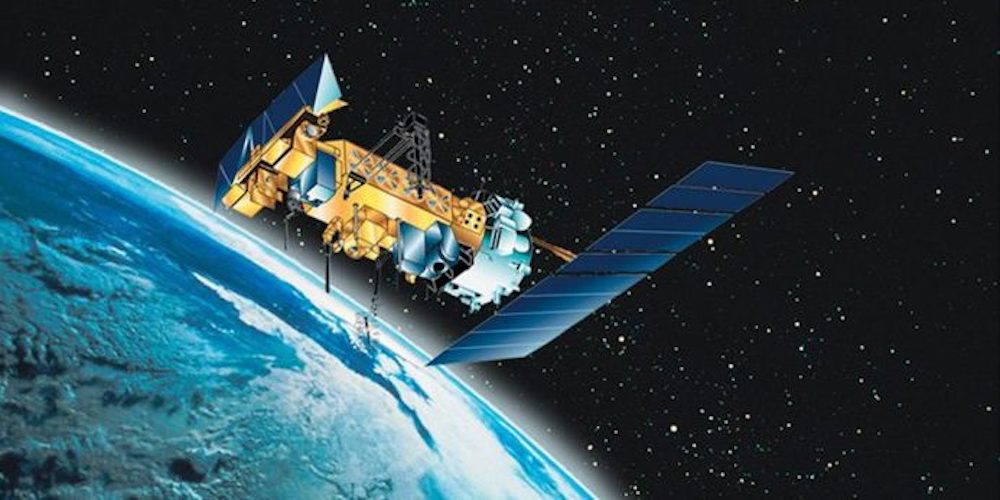India Now a Leading Space Power

Around 75 start-ups have registered so far under space technology category in the Startup India portal, according to Dr Jitendra Singh, Union Minister of State (Independent Charge) Science & Technology; Minister of State (Independent Charge) Earth Sciences; MoS PMO, Personnel, Public Grievances, Pensions, Atomic Energy and Space.
In a written reply to a question in the Lok Sabha recently, Dr J Singh has said that there are many more startups registered under other categories that are also involved in the space domain.
The Minister said that to facilitate private sector participation in Space activities, Department of Space, (DOS) is revising the existing policies in space domain and new policy framework is being drafted to address various space sectors such as SpaceCom, Remote Sensing, Technology Transfer, Navigation, Space Transportation, Space exploration and Space Situational Awareness. Provisions are being factored in the above policy framework for the development of the private sector including MSMEs and startups in the space sector.
In a related reply to another question in the Lok Sabha on the steps taken by the Government to bring private players on board to get their participation in the Space activities of ISRO, Dr Jitendra Singh informed that Government of India has announced reforms in June, 2020, in the space sector towards enabling the private players to provide end to end services and subsequently the following steps were taken:
(I) A national level autonomous Nodal Agency namely Indian National Space Promotion and Authorization Centre (IN-SPACe) under DOS has been created for promoting, handholding, authorizing and licensing private players to carry out Space Activities.
(II) Access to ISRO facilities and expertise are extended to private entities to support their space activities. Apart from this ISRO will also nurture Indian space industries by sharing its experiences on quality and reliability protocols, documentation, testing procedures etc.
(III) Announcement of Opportunities are being done offering challenges in new domains of space technology.
(IV) New Space India Ltd (NSIL), the CPSE under DOS will transfer the matured technologies developed by ISRO to Indian industries.
(V) To facilitate private sector participation in Space activities, the existing policies in the space domain are being revised and new policies are being drafted to address policy frameworks for various areas such as SpaceCom, Remote Sensing, Technology Transfer, Navigation, Space Transportation, Space exploration and Space Situational Awareness.
(VI) In order to address the necessary legal framework, the department is also in the process of enacting a National legislation. The draft Space Activities Bill has completed Public and Legal consultations and will be processed for further approvals for inter-ministerial consultations.
The Minister also said that the Government plans to allow FDI to boost the investment in the space sector by the foreign players.
Incidentally, many technology development projects are going on in ISRO centres, spanning the areas of scientific instrumentation, communication, navigation, remote sensing etc. Moreover, Disruptive technologies based on quantum mechanical principle which includes satellite based quantum communication, quantum radar have been initiated.
Initiatives have been taken for the exploration of space weather, the sun, the moon and the other planets as well as astronomical sources. As revealed by Dr. Singh, a decadal plan is under preparation covering scientific and technological development for future space missions.
On the issue of ISRO’s plan to develop an Indian Space Telescope, Dr Singh says that ISRO has already realized X-ray and Visible/ UltraViolet telescopes. In the coming years ISRO has plans to develop space telescopes dedicated for UV and visible/IR astronomy. The planned UV telescope will be made up of a 1 meter mirror and will provide the deepest images in UV.
As it is, India has done phenomenally well in the Space-arena. The Indian Space Research Organisation (ISRO) has launched a total of 129 satellites of Indian Origin and 342 foreign satellites belonging to 36 countries of which nearly 39 satellites are commercial satellites and the rest are nano-satellites since 1975.
India has now a total of 53 operational satellites in space providing various identified services to the nation. 21 of these are communication satellites, 8 are Navigation satellites, 21 are Earth Observation Satellites and 3 are Science Satellites.
The satellite enabled data and services are being used for the benefit of various sectors of the country. These include Television broadcasting, Direct-to-Home, ATM, Mobile communication, tele-education, tele-medicine and advisories on weather, pest infestation, agro-meteorology and potential fishing zones.
Satellite data is also used for crop production estimation, crop intensification, and agricultural drought assessment, wasteland inventory, identifying ground water prospect zones, inland aquaculture suitability and disaster risk reduction.
ISRO has plans to launch more satellites to further enhance operational applications and cater the needs of emerging applications and user ministerial requirements in the country.
Many of the applications have been effectively adopted by stakeholder departments for operational use. A few of such applications include: Potential Fishing Zone Forecast & Ocean State Forecast by Indian National Centre for Ocean Information Services, (MoES), Crop Acreage and Production Forecasting & National Agricultural Drought Assessment and Monitoring System by Mahalanobis National Crop Forecast Centre, (MoA&FW), Biennial Forest Cover Assessment by Forest Survey of India (MoEF&CC), Irrigation Infrastructure Assessment by Central Water Commission (Ministry of Jal Shakti), Weather forecasting by India Meteorological Department (MoES), Ground Water Prospect and Suitable Recharge Locations’ mapping (Ministry of Jal Shakti), Integrated Watershed Management Programme & MGNREGA by MoRD.
India is also now launching satellites of foreign countries. Country wise breakup of number of foreign satellites launched during 2016-17 to 2021-22 are Algeria (3), Australia (1), Austria (1), Belgium (3), Brazil (1), Canada (5), Chile (1), Colombia (1), Czech Republic (1), Finland (3), France (2), Germany (2), Indonesia (1), Israel (2), Italy (4), Japan (2), Kazakhstan (1), Latvia (1), Lithuania (7), Luxembourg (1), Malaysia (1), The Netherlands (2), Republic Of Korea (5), Slovakia (1), Spain (2), Switzerland (2), UAE (1), United Kingdom (6), USA (222).



